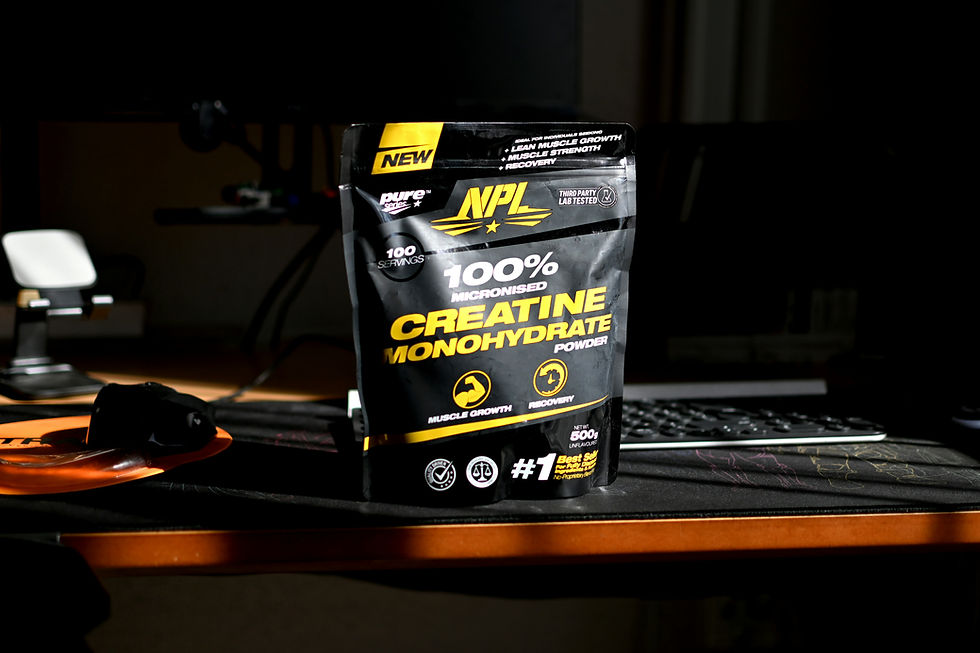5 Evidence-Based Games and Activities That Enhance Mental Health and Well-being
- Team picks

- Aug 31, 2024
- 3 min read
Engaging in these strategic activities can significantly contribute to improved mental health, supported by scientific research and expert insights.

Mental health has become a crucial area of focus in contemporary society, with the increasing recognition of its impact on overall well-being and quality of life. Numerous studies have demonstrated the effectiveness of various games and activities in promoting mental health.
These activities, rooted in cognitive behavioral therapy (CBT) principles, mindfulness, and social interaction, have been shown to alleviate symptoms of anxiety, depression, and stress.
This article explores five such activities, supported by empirical evidence, that have been widely recognized for their mental health benefits.
🔥 Get Your Blaze Box! The Best Hot Sauce Subscription with 3 Full-Size Bottles, Free Shipping, and a Surprise Gift Every Month! Learn more
1. Cognitive Training Games
Cognitive training games, also known as brain-training games, have been extensively studied for their potential to improve cognitive functions such as memory, attention, and problem-solving skills.
These games often involve tasks that require players to focus, plan, and adapt to new information, thereby enhancing mental agility and resilience. According to a study published in Nature, regular engagement with cognitive training games can lead to measurable improvements in working memory and processing speed, crucial components of mental well-being.
2. Mindfulness-Based Stress Reduction (MBSR) Activities
Mindfulness activities, such as meditation, yoga, and breathing exercises, are key components of MBSR programs. These activities focus on cultivating present-moment awareness and have been proven effective in reducing symptoms of anxiety and depression.
A meta-analysis conducted by researchers at Johns Hopkins University found that MBSR can significantly reduce symptoms of stress and improve overall mental health. Incorporating these practices into daily routines can lead to long-term mental health benefits.
3. Physical Exercise
Physical activity is one of the most effective ways to boost mental health. Engaging in regular exercise has been shown to reduce symptoms of depression and anxiety, while also improving mood and cognitive function.
According to the World Health Organization (WHO), adults who engage in at least 150 minutes of moderate-intensity exercise per week are less likely to experience mental health disorders. Whether it’s aerobic exercises like running, cycling, or swimming, or strength training, the mental health benefits of physical exercise are well-documented.
4. Social Games and Team Sports
Social interaction plays a crucial role in mental health. Games and activities that involve teamwork and socialization can help build social support networks, which are vital for emotional resilience.
A study by the American Psychological Association highlights that individuals who participate in team sports or social games report lower levels of stress and higher levels of happiness and life satisfaction. These activities promote a sense of belonging and connectedness, which are essential components of mental health.
5. Creative Arts and Crafts
Engaging in creative activities such as painting, drawing, or crafting can serve as a powerful outlet for emotions and a way to express oneself. Research has shown that creative arts therapies can effectively reduce symptoms of anxiety, depression, and PTSD.
A study published in the Journal of the American Art Therapy Association found that individuals who engage in art therapy experience significant reductions in stress levels and improvements in mood. These activities provide an opportunity for self-reflection and emotional processing, contributing to overall mental well-being.
Incorporating these evidence-based activities into daily life can lead to significant improvements in mental health. As noted by the National Institute of Mental Health (NIMH), proactive engagement in mental health-promoting activities is a vital part of maintaining psychological well-being and preventing the onset of mental health disorders.



Comments